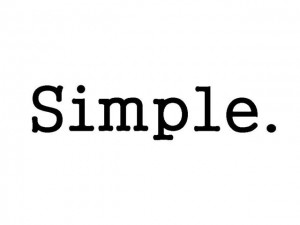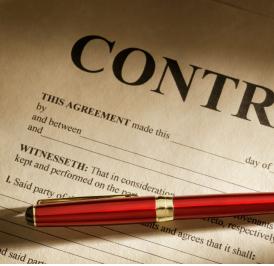 Yesterday, I said there are two mistakes lawyers make in marketing their services: not having a plan and not executing that plan. Today, I want to help you create a simple marketing plan for your law practice.
Yesterday, I said there are two mistakes lawyers make in marketing their services: not having a plan and not executing that plan. Today, I want to help you create a simple marketing plan for your law practice.
Why simple? Because if it’s not simple, you won’t do it.
Forget complicated. Forget long term. A simple plan has a few steps and a short time frame–this month, this week, today. You can create this plan in a few minutes; you can execute the plan a few minutes a day. Short, sweet, do-able. Baby steps, followed by more baby steps.
Most plans are overwhelming. Pages of tasks and sub-tasks, market research, resources, footnotes. A simple plan fits on a sticky note.
So let’s get to it. Let’s create a simple plan and let’s use a magic number: three. Three things. Not seven or seventeen, just three. Why three? Because you can remember three things. You won’t even need a sticky note.
We’ll start with some objectives:
- Three new clients a month
- Three prospects a week
- Three actions a day
Your goal is three new clients a month. (Feel free to adjust these numbers for your practice.) In order to get them, you’re going to get three prospects each week. In order to do that, you’re going to perform three marketing-related activities each day.
So far so good. Easy peezy.
Now, let’s brainstorm some ideas. Write down your ideas–this is not your plan, it is thinking on paper which will help you create your plan.
NEW CLIENTS
There are different kinds of “new clients”:
- Never hired you before
- Former clients who hire you again
- Existing clients with new engagements
Choose one. Let’s say, “never hired you before.”
PROSPECTS
Let’s define a prospect as someone who looks at some information: a brochure, a web page, an ad, a recorded seminar–something that lets them see what you can do for them. Let’s say you’ve written a report on a subject of interest to your target market. Your objective for the week is to get your report into the hands of three people who have never hired you.
Again, simple, and do-able.
ACTIONS
There are many ways to get information into the hands of a prospect. You can do that via
- Phone
- Social media
- Advertising
- Snail mail
- In person
- Articles
- Speaking
- Etc.
Let’s use your existing network of clients and professional contacts as the conduit for distributing your report and phone and email to do that. So, here are your action steps, in preparation for executing your plan:
- Write a report.
- Make a list of clients, former clients, and professionals you can contact.
- Calendar 15 minutes a day for calls.
Now, here’s your plan:
- Monday through Friday, between 3pm and 3:15pm, I will call three people on my list.
- I will tell them about my report, confirm their email, and tell them I’m sending the report to them.
- I will ask them to forward the report to people they know who might be interested in reading it.
A simple plan. One you can do. One you will do. And one that will work.














